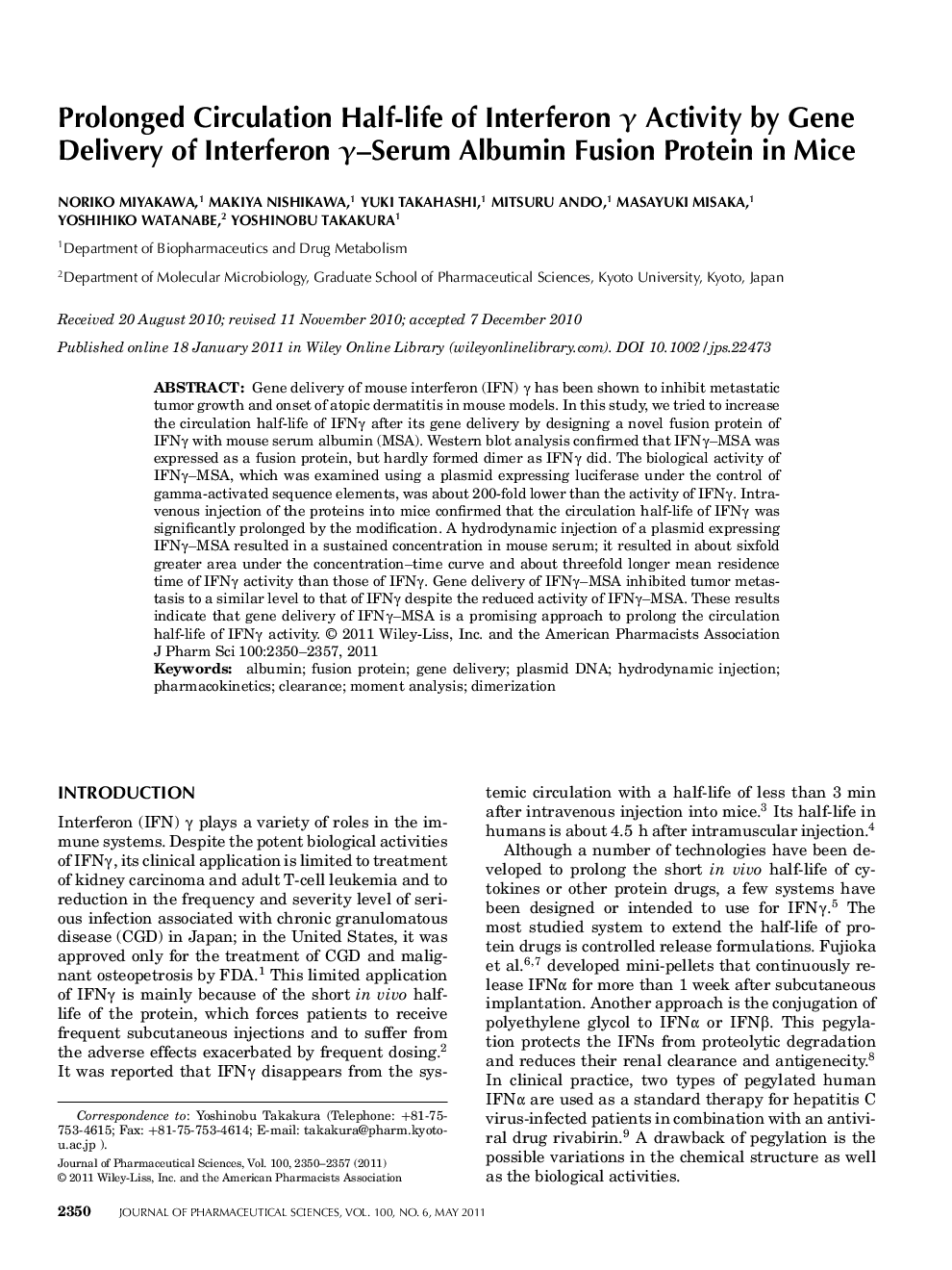| Article ID | Journal | Published Year | Pages | File Type |
|---|---|---|---|---|
| 2486442 | Journal of Pharmaceutical Sciences | 2011 | 8 Pages |
Abstract
Gene delivery of mouse interferon (IFN) γ has been shown to inhibit metastatic tumor growth and onset of atopic dermatitis in mouse models. In this study, we tried to increase the circulation half-life of IFNγ after its gene delivery by designing a novel fusion protein of IFNγ with mouse serum albumin (MSA). Western blot analysis confirmed that IFNγ-MSA was expressed as a fusion protein, but hardly formed dimer as IFNγ did. The biological activity of IFNγ-MSA, which was examined using a plasmid expressing luciferase under the control of gamma-activated sequence elements, was about 200-fold lower than the activity of IFNγ. Intravenous injection of the proteins into mice confirmed that the circulation half-life of IFNγ was significantly prolonged by the modification. A hydrodynamic injection of a plasmid expressing IFNγ-MSA resulted in a sustained concentration in mouse serum; it resulted in about sixfold greater area under the concentration-time curve and about threefold longer mean residence time of IFNγ activity than those of IFNγ. Gene delivery of IFNγ-MSA inhibited tumor metastasis to a similar level to that of IFNγ despite the reduced activity of IFNγ-MSA. These results indicate that gene delivery of IFNγ-MSA is a promising approach to prolong the circulation half-life of IFNγ activity.
Keywords
Related Topics
Health Sciences
Pharmacology, Toxicology and Pharmaceutical Science
Drug Discovery
Authors
Noriko Miyakawa, Makiya Nishikawa, Yuki Takahashi, Mitsuru Ando, Masayuki Misaka, Yoshihiko Watanabe, Yoshinobu Takakura,
